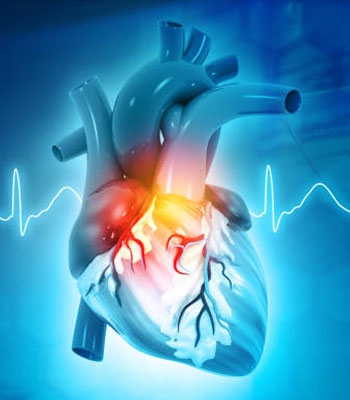In the vast landscape of medical specialties, cardiology stands tall as a crucial branch dedicated to the intricate workings of the heart and circulatory system. As we delve into the realm of cardiology, it becomes apparent that this field is not only fascinating but also pivotal in understanding and managing cardiovascular health.
The Essence of Cardiology
Cardiology, at its core, is the study and treatment of disorders related to the heart and blood vessels. A specialized medical discipline, it encompasses a broad spectrum of conditions ranging from congenital heart defects to acquired disorders such as coronary artery disease and heart failure. Cardiologists, the specialists in this domain, play a pivotal role in diagnosing, preventing, and treating cardiovascular ailments.
The Anatomy of the Heart
Central to cardiology is a profound understanding of the heart's anatomy. The heart, a muscular organ, is divided into four chambers – two atria and two ventricles. It operates as a powerful pump, circulating blood throughout the body via a complex network of arteries, veins, and capillaries. A comprehensive grasp of this intricate anatomy is vital for cardiologists in their pursuit of unraveling cardiovascular mysteries.
Common Cardiovascular Conditions
Cardiologists encounter a myriad of conditions in their daily practice. Coronary artery disease, characterized by the narrowing of arteries supplying blood to the heart, is a prevalent concern. Hypertension, or high blood pressure, poses a silent threat, often leading to severe complications. Heart failure, arrhythmias, and valvular heart diseases also fall within the purview of cardiology, showcasing the breadth of challenges these specialists tackle.
Diagnostic Techniques in Cardiology
Cardiologists employ an array of diagnostic techniques to assess heart health. Electrocardiograms (ECGs or EKGs) record the heart's electrical activity, aiding in the detection of irregularities. Echocardiography utilizes sound waves to create detailed images of the heart's structure and function. Additionally, stress tests, cardiac catheterization, and advanced imaging technologies play pivotal roles in offering a comprehensive assessment of cardiovascular health.
Preventive Cardiology
Beyond diagnosis and treatment, cardiology places a strong emphasis on prevention. Lifestyle modifications, including a heart-healthy diet, regular exercise, and smoking cessation, form the cornerstone of preventive cardiology. Cardiologists work collaboratively with patients to manage risk factors and promote cardiovascular well-being, aiming to thwart the onset of heart disease.
Technological Advancements in Cardiology
The field of cardiology has witnessed remarkable technological advancements in recent years. Interventional cardiology, for instance, employs minimally invasive procedures such as angioplasty and stent placement to treat coronary artery disease. Implantable devices like pacemakers and defibrillators offer innovative solutions for managing cardiac rhythm abnormalities. These breakthroughs underscore the dynamic nature of cardiology, as it continually embraces cutting-edge technologies for improved patient outcomes.
The Role of Research in Advancing Cardiology
Cardiologists actively engage in research to unravel the complexities of cardiovascular diseases and explore innovative treatment modalities. Ongoing studies aim to enhance our understanding of genetic factors influencing heart health, paving the way for personalized medicine in cardiology. The relentless pursuit of knowledge fuels the evolution of cardiology, ensuring that the field remains at the forefront of medical innovation.







